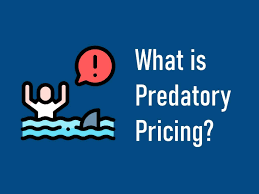CURRENT AFFAIRS
Get the most updated and recent current affair content on Padhaikaro.com
What is Predatory pricing?
- IAS NEXT, Lucknow
- 08, Mar 2022

Reference News:-
The Competition Commission of India has dismissed allegations of predatory pricing against e-commerce platform Shopee.
What were the allegations of violation of competition norms against Shopee?
Shopee sells various products at extremely low prices with the intention to eliminate competition from small retailers.
- For example, Shopee’s deep discounting tactics, including flash sales of products for Re.1, Rs 9 and Rs 49, were aimed at attracting a large base of customers and consumer preference data which the company could use to its advantage.
What is Shopee?
Shopee is a Singaporean multinational technology company which focuses mainly on e-commerce.
- Shopee is owned by SEA Limited, which also owns Garena: Free Fire, a popular mobile game that was among the 54 apps restricted in India.
- As of 2021, it is widely considered as the largest e-commerce platform in Southeast Asia.
What has the CCI ruled?
Shopee did not hold significant market power as it is a relatively new entrant in a market with well established players.
What is Predatory pricing?
Predatory pricing is the illegal act of setting prices low to attempt to eliminate the competition.
- Predatory pricing violates antitrust laws, as it makes markets more vulnerable to a monopoly.
Establishing that a business is engaging in predatory pricing requires that:
- The enterprise be a dominant player in the relevant market.
- Its goods or services are being marketed below cost.
- Sub-tactics are being used with the intention to eliminate competition.
About the Competition Commission Of India:
Established under the Competition Act, 2002 for the administration, implementation and enforcement of the Act, and was duly constituted in March 2009.
- Chairman and members are appointed by the central government.
Functions of the commission:
- To eliminate practices having adverse effects on competition.
- Promote and sustain competition.
- Protect the interests of consumers and ensure freedom of trade in the markets of India.
The Competition Act:
The Monopolies and Restrictive Trade Practices Act, 1969 (MRTP Act) was repealed and replaced by the Competition Act, 2002, on the recommendations of the Raghavan committee.
- The Competition Act, 2002, as amended by the Competition (Amendment) Act, 2007, prohibits anti-competitive agreements, abuse of dominant position by enterprises and regulates combinations (acquisition, acquiring of control and M&A), which causes or likely to cause an appreciable adverse effect on competition within India.